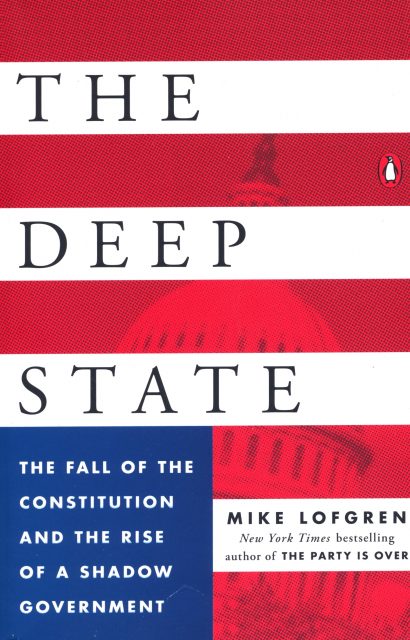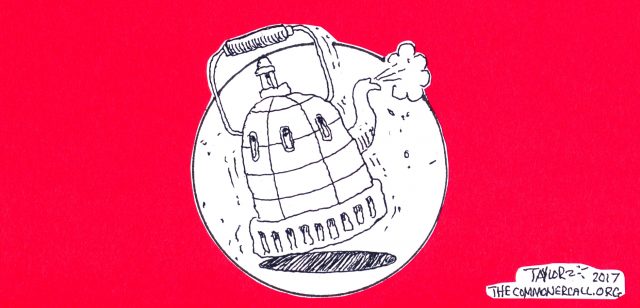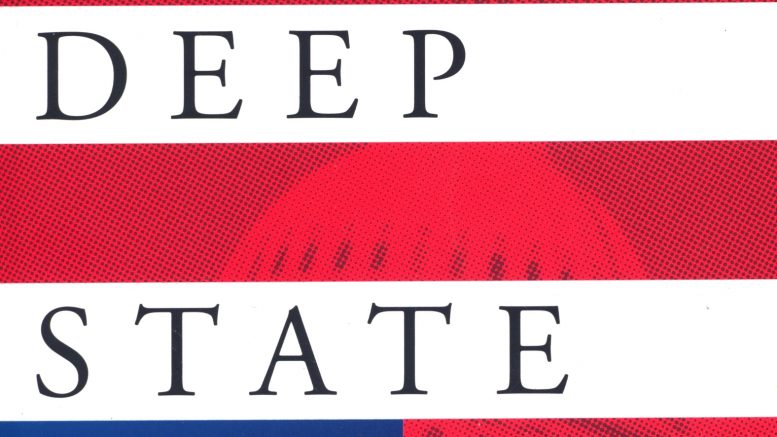
[Editor’s Note: Be sure to watch all the way through to the end to catch Bill Moyer’s commentary. — Mark L. Taylor]
Moyers & Company (4/15/16)
Mike Lofgren, a congressional staff member for 28 years, joins Bill Moyers to talk about what he calls Washington’s “Deep State,” in which elected and unelected figures collude to protect and serve powerful vested interests. “It is how we had deregulation, financialization of the economy, the Wall Street bust, the erosion or our civil liberties and perpetual war,” Lofgren tells Moyers.
*****
Essay: Anatomy Of The Deep State

In terms of its scope, financial resources and sheer global reach, the American hybrid state, the Deep State, is in a class by itself.
[Editor’ Note: While this was published in 2014 it is as timely as ever. — Mark L. Taylor]
By Mike Lofgren
Moyers & Company (2/21/14)
Rome lived upon its principal till ruin stared it in the face. Industry is the only true source of wealth, and there was no industry in Rome. By day the Ostia road was crowded with carts and muleteers, carrying to the great city the silks and spices of the East, the marble of Asia Minor, the timber of the Atlas, the grain of Africa and Egypt; and the carts brought out nothing but loads of dung. That was their return cargo.
— The Martyrdom of Man by Winwood Reade (1871)
There is the visible government situated around the Mall in Washington, and then there is another, more shadowy, more indefinable government that is not explained in Civics 101 or observable to tourists at the White House or the Capitol. The former is traditional Washington partisan politics: the tip of the iceberg that a public watching C-SPAN sees daily and which is theoretically controllable via elections. The subsurface part of the iceberg I shall call the Deep State, which operates according to its own compass heading regardless of who is formally in power. [1]
During the last five years, the news media have been flooded with pundits decrying the broken politics of Washington. The conventional wisdom has it that partisan gridlock and dysfunction have become the new normal. That is certainly the case, and I have been among the harshest critics of this development. But it is also imperative to acknowledge the limits of this critique as it applies to the American governmental system. On one level, the critique is self-evident: In the domain that the public can see, Congress is hopelessly deadlocked in the worst manner since the 1850s, the violently rancorous decade preceding the Civil War.
As I wrote in The Party is Over, the present objective of congressional Republicans is to render the executive branch powerless, at least until a Republican president is elected (a goal that voter suppression laws in GOP-controlled states are clearly intended to accomplish). President Obama cannot enact his domestic policies and budgets: Because of incessant GOP filibustering, not only could he not fill the large number of vacancies in the federal judiciary, he could not even get his most innocuous presidential appointees into office. Democrats controlling the Senate have responded by weakening the filibuster of nominations, but Republicans are sure to react with other parliamentary delaying tactics. This strategy amounts to congressional nullification of executive branch powers by a party that controls a majority in only one house of Congress.
Far from being invincible, its failures, such as those in Iraq, Afghanistan and Libya, are routine enough that it is only the Deep State’s protectiveness towards its higher-ranking personnel that allows them to escape the consequences of their frequent ineptitude.
Despite this apparent impotence, President Obama can liquidate American citizens without due processes, detain prisoners indefinitely without charge, conduct dragnet surveillance on the American people without judicial warrant and engage in unprecedented — at least since the McCarthy era — witch hunts against federal employees (the so-called “Insider Threat Program”). Within the United States, this power is characterized by massive displays of intimidating force by militarized federal, state and local law enforcement. Abroad, President Obama can start wars at will and engage in virtually any other activity whatsoever without so much as a by-your-leave from Congress, such as arranging the forced landing of a plane carrying a sovereign head of state over foreign territory. Despite the habitual cant of congressional Republicans about executive overreach by Obama, the would-be dictator, we have until recently heard very little from them about these actions — with the minor exception of comments from gadfly Senator Rand Paul of Kentucky. Democrats, save a few mavericks such as Ron Wyden of Oregon, are not unduly troubled, either — even to the extent of permitting seemingly perjured congressional testimony under oath by executive branch officials on the subject of illegal surveillance.
While Americans suffer, they always find the money for…
These are not isolated instances of a contradiction; they have been so pervasive that they tend to be disregarded as background noise. During the time in 2011 when political warfare over the debt ceiling was beginning to paralyze the business of governance in Washington, the United States government somehow summoned the resources to overthrow Muammar Ghaddafi’s regime in Libya, and, when the instability created by that coup spilled over into Mali, provide overt and covert assistance to French intervention there. At a time when there was heated debate about continuing meat inspections and civilian air traffic control because of the budget crisis, our government was somehow able to commit $115 million to keeping a civil war going in Syria and to pay at least £100m to the United Kingdom’s Government Communications Headquarters to buy influence over and access to that country’s intelligence. Since 2007, two bridges carrying interstate highways have collapsed due to inadequate maintenance of infrastructure, one killing 13 people. During that same period of time, the government spent $1.7 billion constructing a building in Utah that is the size of 17 football fields. This mammoth structure is intended to allow the National Security Agency to store a yottabyte of information, the largest numerical designator computer scientists have coined. A yottabyte is equal to 500 quintillion pages of text. They need that much storage to archive every single trace of your electronic life. …

